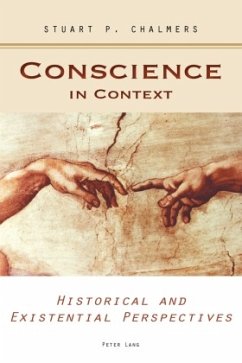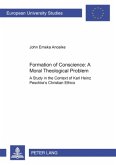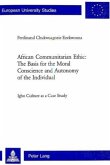In this book, the author presents a detailed study of the notion of conscience from the perspective of its historical development and existential environment. The purpose of the study is to highlight conscience's dignity and fallibility, as well as its dependence upon the context of virtue and grace, in order to develop as our capacity to perceive the truth in moral action. Starting from the premise that current moral theory is suffering from fragmentation, the author proposes that this fragmented outlook has affected the common understanding of conscience and is therefore in need of renewal, chiefly in terms of the reintegration of conscience with its proper setting. In order to explore this theory, he investigates how conscience has been understood over the centuries, particularly in the New Testament and during the Scholastic period, and analyses a number of important issues concerning its nature and function.
Bitte wählen Sie Ihr Anliegen aus.
Rechnungen
Retourenschein anfordern
Bestellstatus
Storno








